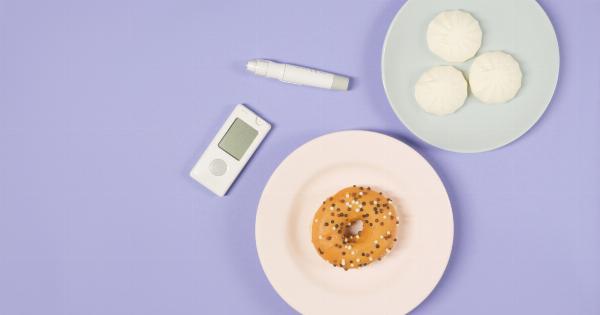A colonoscopy is a medical procedure that allows doctors to examine the inside of your colon and rectum. It is often recommended as a routine screening test for individuals over the age of 50 or for individuals with certain medical conditions.
During a colonoscopy, a long, flexible tube called a colonoscope is inserted through the rectum and navigated through the entire colon. This allows the doctor to detect and remove any abnormalities such as polyps or tumors.
Preparing for a Colonoscopy
Before undergoing a colonoscopy, proper preparation is crucial. The colon needs to be completely clean in order for the doctor to have a clear view of the colon lining.
This typically involves a special diet and a bowel preparation regimen prescribed by your doctor. The diet usually involves restricting certain types of foods and consuming clear liquids to help cleanse the colon.
The Importance of a Post-Colonoscopy Diet
After the colonoscopy procedure, your digestive system needs time to recover. This is where a post-colonoscopy diet comes into play. The goal of this diet is to gradually reintroduce solid foods and aid in the healing process.
It is also important to avoid any foods that may irritate the colon or cause discomfort.
Duration of the Post-Colonoscopy Diet
The duration of the post-colonoscopy diet may vary depending on individual factors and your doctor’s recommendations. Generally, it is advised to follow this diet for a few days to a week after the procedure.
It is important to consult with your doctor regarding the duration and specific guidelines of your post-colonoscopy diet.
Recommended Foods for the Post-Colonoscopy Diet
1. Clear Liquids: In the initial period after the colonoscopy, clear liquids are recommended to provide hydration and ease digestion. This includes water, broth, tea, coffee (without cream or milk), and clear fruit juices.
2. Soft Foods: As your digestive system recovers, you can gradually introduce soft and easily digestible foods such as cooked vegetables, mashed potatoes, oatmeal, yogurt, and scrambled eggs.
3. Lean Proteins: Include lean proteins such as skinless chicken, fish, tofu, and eggs to aid in the healing process and provide essential nutrients.
4. Whole Grains: Once you are ready for solid foods, choose whole grains like brown rice, quinoa, and whole wheat bread to provide fiber and promote regular bowel movements.
5. Fruits and Vegetables: Incorporate fruits and vegetables gradually into your diet. Start with cooked or soft fruits like bananas and applesauce, and steamed or well-cooked vegetables before moving on to raw produce.
Foods to Avoid on the Post-Colonoscopy Diet
1. Spicy Foods: Spicy foods can irritate the digestive system, especially after a colonoscopy. Avoid foods with chili peppers, hot sauces, and excessive use of spices.
2. Gas-Producing Foods: Some foods can cause gas and bloating, which may be uncomfortable after the procedure. These include beans, lentils, cabbage, broccoli, onions, and carbonated beverages.
3. High-Fat Foods: Foods high in saturated fats can be challenging to digest and may slow down the healing process. Limit your intake of fried foods, fatty cuts of meat, and full-fat dairy products.
4. Raw Vegetables and Fruits with Seeds: While fruits and vegetables are essential for a healthy diet, raw produce with seeds can be hard to digest. Avoid raw tomatoes, cucumbers, and berries until your digestive system has recovered.
5. Alcohol and Caffeine: It is advisable to avoid alcohol and caffeinated beverages during the recovery phase as they can dehydrate your body and potentially irritate the colon.
Gradual Transition to a Normal Diet
Once you have successfully followed the post-colonoscopy diet for the recommended duration, it is time to gradually transition back to your regular diet. Start by slowly reintroducing foods that were restricted during the recovery phase.
Monitor your body’s response and make sure there are no discomfort or adverse reactions. If any issues arise, consult your doctor for further guidance.
Importance of Hydration
Staying hydrated is crucial during the post-colonoscopy diet and the recovery phase. Drink plenty of fluids, including water and non-caffeinated clear liquids. Proper hydration helps prevent constipation and promotes healing.
Listen to Your Body
Every individual’s body reacts differently to the colonoscopy procedure and the subsequent diet. Pay attention to your body’s signals and adjust your diet accordingly.
If you experience any persistent discomfort, severe pain, or prolonged digestive issues, contact your doctor for further evaluation and guidance.





























